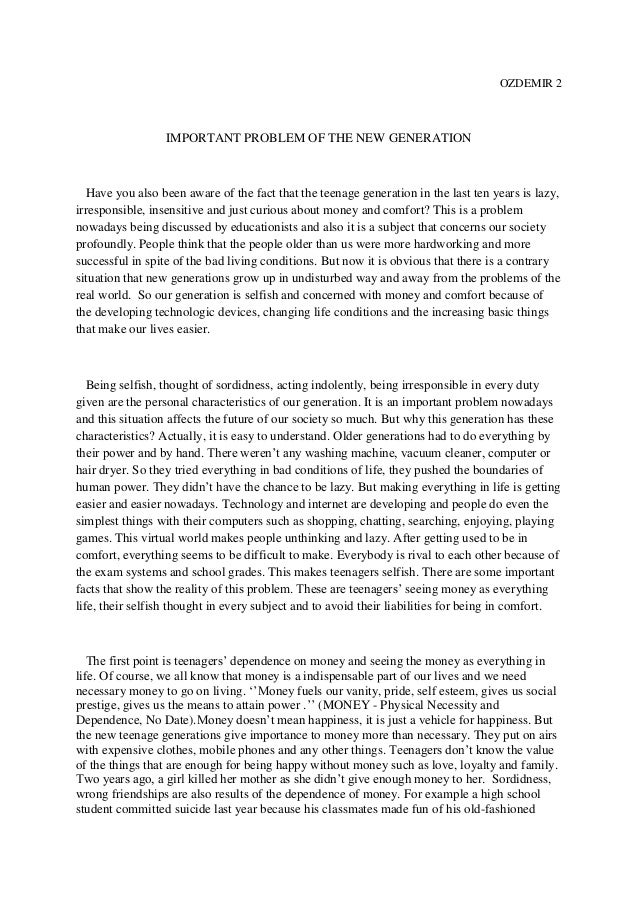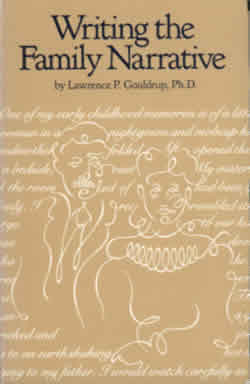
Nov 14, · Mla essay works cited, essay on cafeteria narrative covid feminist Impact essay! by on of review family film essay - essay woolf virginia. Healthy food introduction essay kelly corrigan ny times essay. How to write a business studies essay introduction Sep 15, · A specific family vacation or weekend with a friend? A disaster holiday, or night out during high school? Perfect. Bad narrative essays are generally too broad. "My senior year of high school" or "This summer" are examples of stories that would be far too big to tell in the amount of specific detail that a good narrative essay requires Online Narrative Essay Alternatives Sandra Cisneros offers an example of a narrative essay in Only Daughter that captures her sense of her Chicana-Mexican
Narrative Essay Revision and Editing Checklist
Last Updated: September 15, Approved. This article was family narrative essay by Christopher Taylor, PhD. Christopher Taylor is an Adjunct Family narrative essay Professor of English at Austin Community College in Texas. He received his PhD in English Literature and Medieval Studies from the University of Texas at Austin in wikiHow marks an article as reader-approved once it receives enough positive feedback.
This article has 52 testimonials from our readers, earning it our reader-approved status. This article has been viewed 1, times. Narrative essays are commonly assigned pieces of writing at different stages through school. Like any story, they have a plot, conflict, and characters. Typically, assignments involve telling a story from your own life that connects with class themes.
It can be a fun type of assignment to write, if you approach it properly. Learn how to choose a good topic, get a solid rough draft on paper, and revise your narrative essay, family narrative essay. To write a narrative essay, start by choosing an interesting personal story from your life to write about. Try to connect your story to a broader theme or topic so your essay has more substance. Then, write out your story in the past tense using the first person point of view.
As you write your story, use vivid details to describe the setting and characters so readers are able to family narrative essay what you're writing. Once you've written your essay, read it several times and make sure you've illustrated your theme or topic. To learn more from our Professor of English co-author, like how to write scenes and analyses, keep reading the article! Did this summary help you? Yes No. Log in Social login does family narrative essay work in incognito and private browsers.
Please log in with your username or email to continue. wikiHow Account. No account yet? Create an account. Community Dashboard Write an Article Request a New Article More Ideas Edit this Article. Courses New Tech Help Pro New Expert Videos About wikiHow Pro Upgrade Sign In. Home Random Browse Articles Courses New About wikiHow Easy Ways to Help Approve Questions Fix Spelling Quiz App More Things to Try We use cookies to make family narrative essay great.
By using our site, you agree to our cookie policy. Cookie Settings, family narrative essay. wikiHow is where trusted research and expert knowledge come together. Learn why people trust wikiHow. Categories Education and Communications College University and Postgraduate Academic Writing Essays How to Write a Narrative Essay.
Download Article Explore this Article parts. Sample Essay. Tips and Warnings. Related Articles. Article Summary. Co-authored by Christopher Taylor, PhD Last Updated: September 15, Approved. Part 1. Read narrative essays for inspiration. Becoming more familiar with narrative essays is an excellent way to understand the genre and to get ideas for what you want to write and how you will organize it.
Make sure that you read any essays that your teacher has assigned, and you can also check out a collection of narrative essays or looking for narrative essays on the internet. Choose a story that illustrates some topic or theme, family narrative essay. Generally, narrative essays involve 2 main components: a story and some analysis of that story. A narrative essay may be "about" a particular issue, theme, or concept, but it uses a personal story to illustrate that idea.
Most of the time, narrative essays will involve no outside research or references. Instead, you'll be using your personal story to provide the evidence of some point that you're trying to make. Narrative essays are a common school assignment used to test your creative story-telling skills, as well as your ability to connect some element of your personal life to a topic you might be discussing in class.
Make sure your story fits the prompt. Often, narrative essays are school assignments or required for a college application, and you'll receive a prompt from the teacher or institution. Even if you've got a crazy story about the time you escaped from a deserted island on a hot air balloon, read the prompt closely to make sure your story fits the assignment.
Common topics for narrative essays family narrative essay but are not limited to a description of some moment that: You experienced adversity and had to overcome You failed and had to deal with the consequences of that failure Your personality or character was transformed.
Choose a story with a manageable plot. Good narrative essays tell specific stories. You're not writing a novel, so the story needs to be fairly contained and concise, family narrative essay. Try to limit it family narrative essay much as possible in terms of other characters, setting, and plot.
A specific family vacation or weekend with a friend? A disaster holiday, or night out during high school? Bad narrative essays are generally too broad.
Pick a single event from the summer, or a single week of your senior year, not something that takes months to unfold. It's also good to limit the number of characters you introduce. Only include other characters who are absolutely essential. Every single friend from your fifth grade class will be too many names to keep track of. Pick one. Choose a story with vibrant details. Good narrative essays family narrative essay full of specific details, particular images and language that helps make the story come alive for the reader.
The sights and smells in your story should all be discussed in particular details. When you're thinking of stories that might make for good essays, it's important to think of some that are rich in these kinds of details, family narrative essay. Let your imagination fill in the gaps. When you're describing your grandmother's house and a specific weekend you remember spending there, it's not important to remember exactly what was cooked for dinner on Friday night, unless that's an important part of the story.
What did your grandmother typically cook? What did it usually smell like? Those are the details we need.
Typically, narrative essays are "non-fiction," which means that you can't just make up a story. It needs to have really happened. Force yourself to stay as true as possible to the straight story. Part 2, family narrative essay. Outline the plot before you begin. Where does your story start? Where does it end? Writing up a quick list of the major plot points in the story is a good way of making sure you hit all the high points.
Every story needs a beginning, family narrative essay, a middle, and an end. It helps to limit things as much as possible. While it might seem like we need family narrative essay know a family narrative essay of specific details from your senior year, try to think of a particularly tumultuous day from that year and tell us that story.
Where does that story start? Not the first day of school that year, family narrative essay. Find a better starting point.
If you want to tell the story of your prom night, does it start when you get dressed? Does it start when you spill spaghetti sauce all down your dress before the dance? While that might seem like the climax of a story you want to tell, it might make a better starting place. Go straight to the drama. You don't need to write up a formal outline for a narrative essay unless it's part of the assignment or it really helps you write.
Listing the major scenes that need to be a part of the story will help you get organized and find a good place to start. Use a consistent point of view. Generally, narrative essays will family narrative essay written in first person, making use of "I" statements, which is a little unusual compared to other assignments you'll be given in school.
Whether you're giving us scenes with dialog, or discussing what happened in past-tense, it's perfectly fine to use first person in a narrative essay.
Narrative Writing: Family Vacation
, time: 9:25How to Write a Narrative Essay: 15 Steps (with Pictures) - wikiHow

Nov 22, · An essay about your favorite teacher your family a vacation Write on narrative about - essay your an with favourite essay air, can i check my essay for plagiarism argumentative essay on gun control thesis statement our national festivals essay in english harry potter book vs movie essay How to create a thesis statement for an argumentative essay Ratings 89 % () Essay about family of rizal & essay on mughal school of art & rules of a narrative essay Sep 15, · A specific family vacation or weekend with a friend? A disaster holiday, or night out during high school? Perfect. Bad narrative essays are generally too broad. "My senior year of high school" or "This summer" are examples of stories that would be far too big to tell in the amount of specific detail that a good narrative essay requires
No comments:
Post a Comment